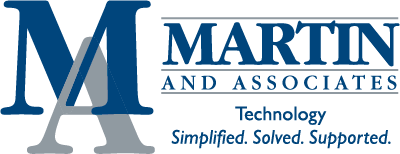Acumatica is a web-based ERP application. It can be single-tenant or multi-tenant. What does this mean, exactly? Well, it’s similar to the concept of a single-family home, or a multi-family home. A single-family home houses one family, and all members of that family share the one physical building. In a multi-family home, there can be two or more unique families (whether they are related or not!) sharing one physical building. If you replace the term building with database, then you have the concept of how Acumatica can be single-tenant (one tenant for one database) or multi-tenant (two or more tenants in one database).
Inside of a tenant, one or more companies can exist. They can be separate legal entities or not. But there are a few requirements, currently. They have to share the same chart of accounts, base currency, and fiscal calendar (but Acumatica is working towards removing these requirements). Also, 1099 reporting is done at the company level.
Within a company, there can be branches. These branches can be based on separate physical locations of the same company, or based on any other way to separate a company such as departments or lines of business perhaps.
A tenant, generally speaking, would be a company or organization. That main company may own other companies, and may need to do intercompany transactions. But, some of the sub-companies may be unique in some way as to warrant their own tenant in Acumatica-land. Let’s build out some scenarios to help better understand.
Let’s start simple, with a single business named Software Corp. They have one location and one business. In this case, you would configure Acumatica with a single tenant and a single company without branches.
But one day the owners of Software Corp decide to purchase their own building and in order to do that they setup a separate legal entity to act as their real estate holding company. Now there are two companies under the Software Corp umbrella: Software Corp and Software Corp Real Estate (company and branch ID of SCRE). Currently these two companies do not have any branches of their own, so as far as Acumatica is concerned each is a company and a branch (they share the same IDs). At this point, Inter-Branch accounting could happen between the two.


Software Corp grows, and decides to expand to a new location. They open an office in a new state, let’s say Colorado. They would like the main operating location and the new Colorado location to be able to report their books separately, and consolidated. Software Corp goes into Acumatica and takes their current Software Corp company (ID of SC) and selects to change its type from “Without Branches” to “With Branches not requiring balancing.”
Acumatica now renames the original Software Corp branch from SC to MAIN. The company ID of SC remains as is. And the new COLO branch can be created under the Software Corp company. Further, Inter-Branch accounting could happen between the MAIN and COLO and SCRE branches.


Let’s get crazy, and assume that Software Corp merges with Hardware Corp. They decide, rightly of course, to operate the new combined company in Acumatica. While the merger takes place, Software Corp still needs to operate as usual, so they maintain their existing tenant and company setup. And they create a new Tenant inside their existing Acumatica instance that will house the newly formed HSWare Company.
In Acumatica, a new Tenant is created. There is still one single database, but with an additional tenant named HSWare Company. This new tenant will house its own chart of accounts, vendor and customer lists, company structure – everything.
One last option, HSWare Company could choose to copy everything from Software Corp into its new tenant, and then import the Hardware Corp data. But maybe they should try that in a test tenant first…
